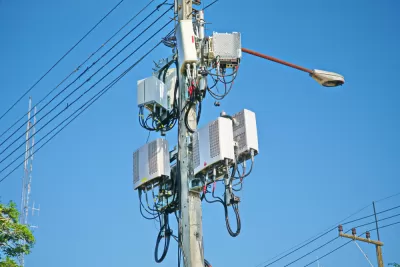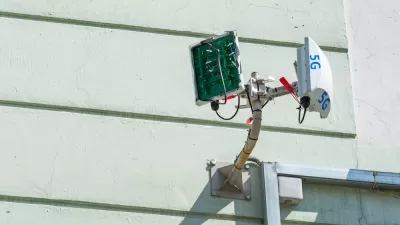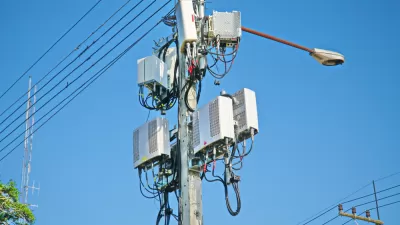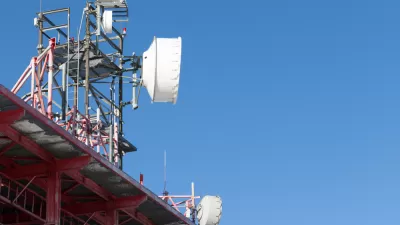Most deployment of 5G "small cells" won't get any resistance from federal regulations.

Jeremy Horwitz reports that the U.S. Federal Communications Commission has taken steps to ease the way for the implementation of 5G cellular networks.
In effect, the decision, approved by a 3-2 vote, will streamline the approvals process for small cells by exempting most planned deployments from review under both the National Environmental Policy Act (NEPA) and National Historic Preservation Act (NHPA). Small cells are advanced radio hardware essential to next generation cellular networks.
Horwitz explains the case made by companies rushing into the 5G market:
According to [FCC Commissioner Brendan] Carr, though only 0.33 percent of the federal reviews actually resulted in changes to planned deployments, they consumed tens of millions of dollars each year and caused significant deployment delays. Nearly 30 percent of the cost of deploying each small cell came from NEPA and NHPA reviews, which if eliminated would save “at least $1.56 billion” during the 5G rollout process.
Horwitz notes that the decision wasn't particularly controversial, but state and local officials, along with tribal governments, raised concerns about local control. Carr also "noted that the order doesn’t restrict localities’ rights to review and approve small cell deployments." The issue of local control over 5G infrastructure deployment is complicated by the placement of small cells on public poles and streetlights. The state of California already devoted a contentious legislative session to the matter, only to have Governor Jerry Brown veto a bill approved by the State Legislature.
FULL STORY: FCC votes to streamline 5G small cell approval process, paving way for 2018 rollouts

Alabama: Trump Terminates Settlements for Black Communities Harmed By Raw Sewage
Trump deemed the landmark civil rights agreement “illegal DEI and environmental justice policy.”

Study: Maui’s Plan to Convert Vacation Rentals to Long-Term Housing Could Cause Nearly $1 Billion Economic Loss
The plan would reduce visitor accommodation by 25% resulting in 1,900 jobs lost.

Planetizen Federal Action Tracker
A weekly monitor of how Trump’s orders and actions are impacting planners and planning in America.

Restoring Northern India’s Himalayan ‘Water Temples’
Thousands of centuries-old buildings protect the region’s natural springs and serve as community wells and gathering places.

Milwaukee to Double Bike Share Stations
Bublr Bikes, one of the nation’s most successful, will add 500 new e-bikes to its system.

DC Extends Application Window for Outdoor Dining Permits
District restaurants will have until the end of November to apply, but businesses with permits in rush hour parking lanes must end operations on July 31.
Urban Design for Planners 1: Software Tools
This six-course series explores essential urban design concepts using open source software and equips planners with the tools they need to participate fully in the urban design process.
Planning for Universal Design
Learn the tools for implementing Universal Design in planning regulations.
Caltrans
Smith Gee Studio
Institute for Housing and Urban Development Studies (IHS)
City of Grandview
Harvard GSD Executive Education
Toledo-Lucas County Plan Commissions
Salt Lake City
NYU Wagner Graduate School of Public Service





























